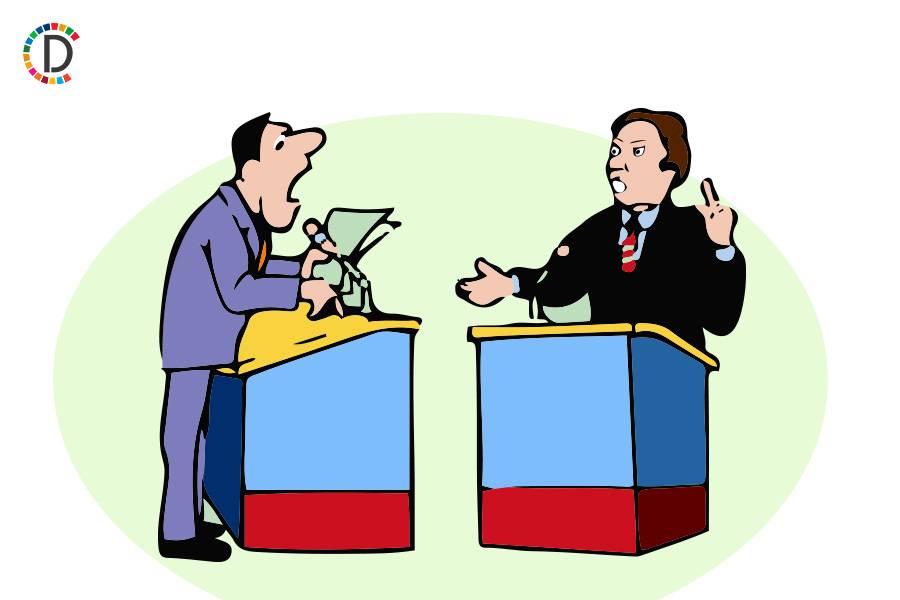US Ambassador Garcetti: India a 'Shining Example' of Democracy
US Ambassador to India, Eric Garcetti, strongly believes in India's democracy and trusts the US-India relationship. He acknowledges some concerns but believes India addresses them. Garcetti highlights India's commitment to free and fair elections, impressive features in its electoral process, and the distribution of power between states and the central government. Despite concerns raised by some, Garcetti maintains that the US can rely on its relationship with India as a defining one in the 21st century.

- Country:
- United States
US Ambassador to India Eric Garcetti has dismissed concerns raised by certain quarters about democracy in India and said he ''100 per cent'' believes that Washington can trust its relationship with New Delhi which is going to be one of the defining relationships of the 21st century.
Speaking at an event organised by the Council on Foreign Relations, a prominent think-tank, Garcetti said he was confident that ''10 years from now India is going to be a vibrant democracy as it is today in terms of free and fair elections''.
''Again there's things that probably are worse and there's things that are better. They have a law, you can't go more than two kilometers to vote. So there'll be one guy who lives in the mountains as a monk (at) someplace. They will walk for two days to bring the voting machine, execute the vote,'' he said, responding to a question expressing concerns over the status of democracy in India.
He said that during election times in India, there are people who check trucks to make sure that nobody has cash going around.
''There's probably walk-in money, as they call it in some cities here in the United States, Philadelphia, that's like a tradition where cash kind of gets you votes and things like that,'' he said.
Garcetti said he has been impressed with certain things Indians do that are better than Americans.
He, however, added there are things that ''we keep our eyes on. And I just disagree that we don't speak out about them''.
''But in my heart, 100 per cent, I believe, not only will this still continue to be one of the world's most vibrant democracies,'' Garcetti said.
''I 100 per cent believe we can trust this relationship. It's going to be one of the defining relationships of the 21st century, the US and India together,'' Garcetti, known to be close to US President Joe Biden, said.
Garcetti also praised how the power is distributed between the states and the central government in India.
''We put them out. It's not the only thing. I mean, some people want us to only say that. But this is too important a relationship to spend all day long only saying that over and over. You're not going to get anything else done. It'll become a self-fulfilling prophecy that they will not be close to us. Whereas where we find the common ground, which I think is really human to human, very deep,'' he said.
''... If you don't know state governments in India, which are as powerful as the centre and are run by opposition parties, and there's plenty of criticisms you can make, too, about other parties that have been in power,'' he said.
''If you look at history in India, there's not been some golden era where everybody's rights have been respected,'' Garcetti said.
Garcetti said Americans poll better in India than Americans do in America.
''You have a lot of leaders there who have come worked, been educated here, have an affinity. There's a huge positive polling of Americans. I told the President (Biden) before the state visit (by Prime Minister Narendra Modi) that Americans poll better in India than Americans do in America. They like us more than we like ourselves. That's rare in the world today,'' Garcetti said, adding that Poland is the only other country that comes close.
This is a huge advantage for the US, he said. Garcetti said America's role is to stand up for the principles and the values that it has and never to retreat from those and talk about them.
''But is the relationship only that and those points of conflict? Absolutely not. It would be bad diplomacy, it would be bad policy,'' he said.
(This story has not been edited by Devdiscourse staff and is auto-generated from a syndicated feed.)
ALSO READ
Decarbonization of Aluminum Industries: States Play Pivotal Role, Study Reveals
Trump accuses Biden of running 'Gestapo administration'
Six Months Until Election Day: Denial and Uncertainty Cast Shadow Over Potential Biden-Trump Rematch
UPDATE 1-Trump accuses Biden of running 'Gestapo administration'
Trump accuses Biden of running 'Gestapo administration'










